Integration Of Refugees Through Sport
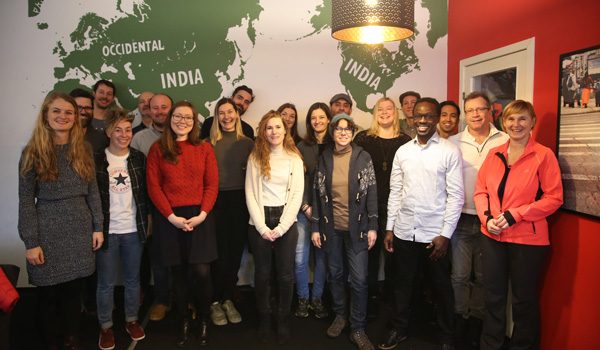
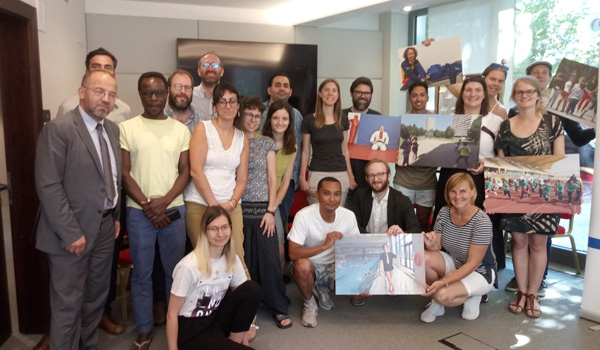
MOVE Beyond: Connecting sport and non-sport organisations to work with refugees
Thousands of organisations and volunteers around the world are working with refugees, all wanting to help facilitate their transition into their new communities. Sports and social clubs, schools, municipalities, humanitarian organisations are often working with the same aim, but are not working together.
MOVE Beyond is a unique collaboration between sport and humanitarian organisations that aims to inspire cross-sector work on Integration of Refugees Through Sport. Learn from international organisations such as the Red Cross and Save the Children, as well as experienced sports organisations and refugee support services, by browsing through our resources below. Find out how to include refugees in designing their own activities and leading focus groups, gain insights from real-life examples in our podcasts, and discover 4 winning approaches tested by our partners.
MOVE Beyond your comfort zone. Work together. #PlayTogether. Achieve more in Integration of Refugees Through Sport.
MOVE Beyond is a project supported by Erasmus+ Sport Collaborative Partnerships.


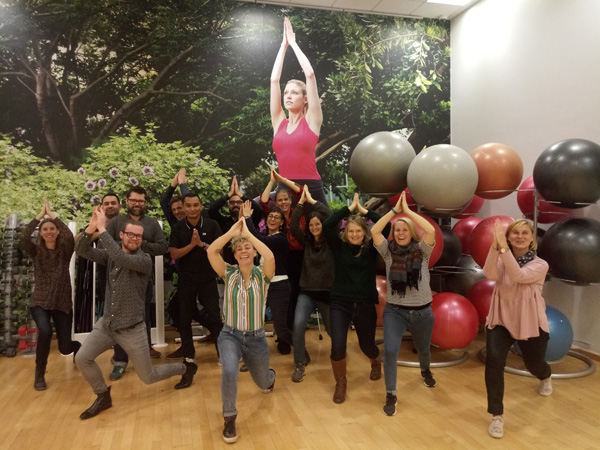
MOVE Beyond partners
The MOVE Beyond partners include the University of Copenhagen’s Advanced Migration Studies (Denmark) and Demos (Belgium), who specialise in research and analysis of best practices in inclusion of refugees and migrants, plus four “implementation pairs”: DGI and the Danish Red Cross (Denmark), UISP Trentino and ATAS (Italy), RF-SISU Västra Götaland/StreetGames Gothenburg and Save the Children Sweden (Region West) (Sweden), and StreetGames and SPARC Sport (UK).
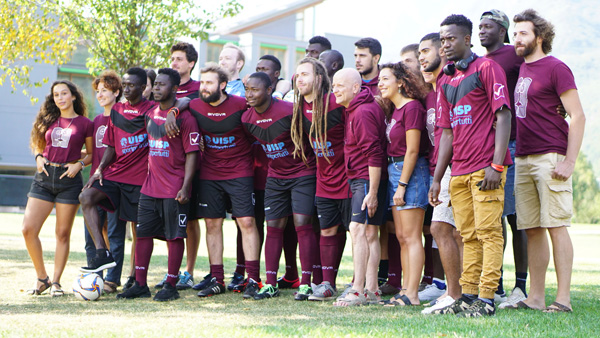
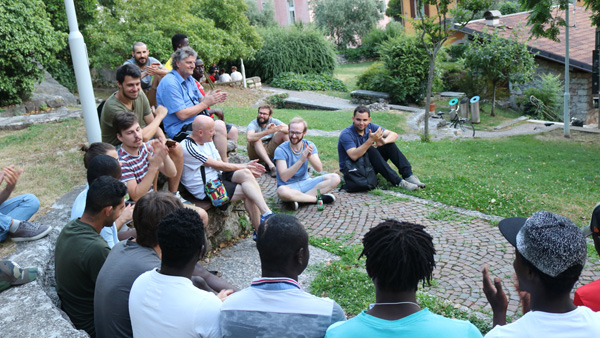
Pilot actions
The partners’ pilot actions aim to overcome barriers preventing asylum seekers and refugees from getting involved in community sport or other local activities.
Denmark
DGI and the Danish Red Cross are working on an initiative called “Friends Show the Way”, which introduces refugees to Danish friends who can help them become a member of their local sports club.
Italy
UISP Trento and ATAS in Italy are collaborating with the ASD Intrecciante asylum centre and local university students to enter a multicultural football team into an amateur 11-a-side football league. Social inclusion is encouraged through a “third half” where all players can get to know each other over food and drinks after the matches.


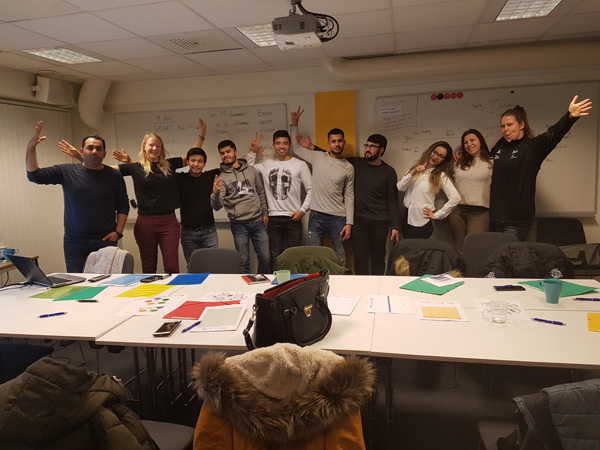
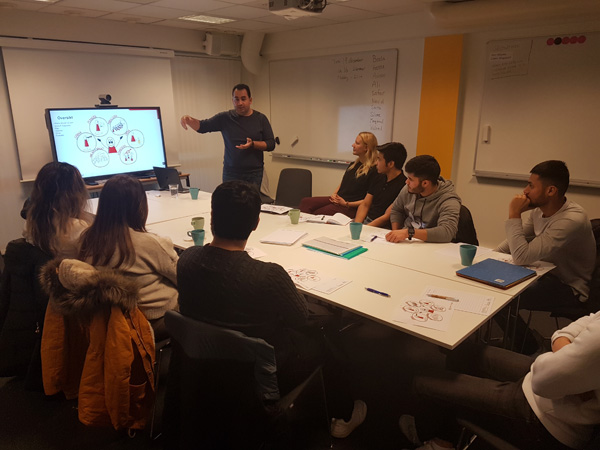
Sweden
Save the Children Region West and RF-SISU Västra Götaland are working with the largest accommodation and training centre for asylum seekers in Sweden, Restad Gård, and StreetGames Gothenburg to help train refugees to become “Intercultural Physical Activity Leaders” and organise their own activities independently.
UK
StreetGames and the SPARC social enterprise joined forces with the Devon and Cornwall Refugee Support Centre and Plymouth City Council to support refugees’ wellbeing through everyday physical activity such as active transport, walking groups, swimming and fitness groups.
The MOVE Beyond partners will present the results of their pilots at national multiplier events and the IRTS Network conference in Copenhagen in November 2020.
Read the results of the partners’ stakeholder consultations here.
MOVE Beyond Resources for
Sport and Humanitarian Organisations

Intellectual Output 1
Barriers and future opportunities for sport and non-sport organisations to use sport and physical activities for inclusion of refugees.
This report features 18 peer-to-peer nuggets of advice for sport and non-sport organisations to consider when entering into a partnership – plus 4 tips for policy-makers to stimulate cross-sector collaboration.
Intellectual Output 2
How to conduct focus groups with refugees.
If you’re organising sport or leisure activities that include refugees or asylum seekers, conducting focus groups can help you connect with your target group and find out what they need BEFORE you start. Download the full guide or infographic for 8 valuable tips.
Intellectual Output 3
4 pilot examples of sport and non-sport partnerships.
Listen to our four podcasts to hear how sport and non-sport organisations in Sweden, Italy, the UK and Denmark joined forces to work on Integration of Refugees Through Sport initiatives – and the most valuable lessons they learned.
Intellectual Output 4
Recommendations for collaboration between sport and non-sport organisations.
Sport and non-sport organisations can achieve more by collaborating and adopting four winning approaches to Integration of Refugees Through Sport: Welcoming, Empowerment, Community and Bridging. Download the infographic or full recommendations.
Intellectual Output 5
Advocacy campaign for mainstreaming the use of sport for inclusion of refugees.
Use our videos, quote cards and visuals to spread the word about how sport and physical activity can be drivers of inclusion and integration for and with refugees. And share your own examples!

Intellectual Output 1
Barriers and future opportunities for sport and non-sport organisations to use sport and physical activities for inclusion of refugees.
This report features 18 peer-to-peer nuggets of advice for sport and non-sport organisations to consider when entering into a partnership – plus 4 tips for policy-makers to stimulate cross-sector collaboration.
Intellectual Output 2
How to conduct focus groups with refugees.
If you’re organising sport or leisure activities that include refugees or asylum seekers, conducting focus groups can help you connect with your target group and find out what they need BEFORE you start. Download the full guide or infographic for 8 valuable tips.
Intellectual Output 3
4 pilot examples of sport and non-sport partnerships.
Listen to our four podcasts to hear how sport and non-sport organisations in Sweden, Italy, the UK and Denmark joined forces to work on Integration of Refugees Through Sport initiatives – and the most valuable lessons they learned.
Intellectual Output 4
Recommendations for collaboration between sport and non-sport organisations.
Sport and non-sport organisations can achieve more by collaborating and adopting four winning approaches to Integration of Refugees Through Sport: Welcoming, Empowerment, Community and Bridging. Download the infographic or full recommendations.
Intellectual Output 5
Advocacy campaign for mainstreaming the use of sport for inclusion of refugees.
Use our videos, quote cards and visuals to spread the word about how sport and physical activity can be drivers of inclusion and integration for and with refugees. And share your own examples!
MOVE Beyond partners funded by
Erasmus+ Sport Collaborative Partnerships
Integration of Refugees through Sport Partners
funded by Nordplus Adult
Integration of Refugees through Sport Partners
funded by Erasmus+ KA2 Strategic Partnerships
Disclaimer
"This project has been funded with support from the European Commission. This website reflects the views only of the author, and the Commission cannot be held responsible for any use which may be made of the information contained therein."
Connect
Subscribe to our newsletter for regular updates on our events, activities and opportunities in our network
You can unsubscribe at any time.




















